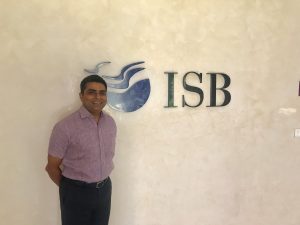
It is a no-brainer that policy impacts our lives in countless ways. However, not many of us are willing to go that extra mile – efforts to understand the broader imperatives of policies and the impact they have on our day-to-day as well as future lives. Well, I admittedly never gave ‘policy’ a deserving examination, at least till the time I started getting impacted by it.
Having spent all my life in the shelters of the military, I must be honest, that my exposure to the ‘Public’ aspects of Policy has been moderately limited. The secure environment of town cantonments, administered by a robust military-like culture, provides a somewhat ideal framework of public life. With all basic needs well catered for, the environment for individual and community growth is quite conducive.
But, things changed for me when I moved to Delhi a few years back. The constant ‘quest for resources’ was evident all over the city. Be it access to affordable housing, water, public transport, schools and anything that drives our everyday lives; one had to be on the top of his or her game to ace it.
Digging into the possible causes of such everyday challenges, I stumbled upon the world of Public Policy. The subject intrigued me like no other. Never had I paid such close attention to how policies impacting millions of us are made, implemented and evaluated. With the bells of Public Policy ringing in my mind, I was fortunate to have been afforded the opportunity of joining the 4th Batch of the Advanced Management Programme in Public Policy (AMPPP) at the Bharti Institute of Public Policy at ISB’s Mohali campus.
The programme has broadened my understanding of the multi-layered complexities associated with policymaking. It’s well-rounded and comprehensive curriculum allows one to develop a solid foundation in the otherwise ‘shaky’ world of policymaking. My perspectives on Public Policy have undergone a complete transformation during the brief engagement with ISB. I see the world of policymaking from a much-informed outlook; better equipped to analyse and forecast their impacts against the metrics of anticipated and unanticipated outcomes.
As I see it, an academic study of Public Policy and its supporting pillars offers several advantages to those wishing to positively impact society, irrespective of their professional affiliations. The cardinal take-aways of this field have universal application, across organizations, making it a common-thread which binds professionals across the spectrum of the public and private sectors.
While the benefits of studying Public Policy are well known and sufficiently documented, I would like to share my views on the benefits it offers to those planning to take the plunge.
Firstly, the inter-disciplinary approach of Public Policy allows its students to broaden their skillsets, preparing them to make evidence-based and outcome-oriented policy recommendations. The necessity to base arguments on well-researched evidence and align it with the desired outcomes gets adequately addressed by its holistic curriculum.
Secondly, a nuanced understanding of policymaking and its analysis is bound to improve one’s problem-solving skills. In today’s VUCA scenarios, such skills are a ‘must-have’ trait for those involved in decision-making and strategy formulation. Importantly, understanding the enmeshed underlays which fundamentally drive policymaking would enable prediction of future events with a reasonable degree of accuracy.
Thirdly, Public Policy combines the areas of policymaking and quantitative analysis in a way that allows students to understand the organic connections between economics and governmental affairs better. This sound understanding of the macroeconomic drivers shaping the global future would aid professionals in crafting their domain-specific strategies.
Lastly, as a military professional, I see merit in studying Public Policy from a ‘strategic’ perspective. To me, it has the potential to enhance the anticipatory skills of professionals which, is a much-desired trait for operational planners and practitioners. The cognitive ability to assimilate data, analyze its outcome based on supporting-evidence and forecast future challenges, make this field a highly thought-provoking and intuitive discipline for those in uniform.
With the changing landscape of the world-order and the role which India aims to play in it, a sound understanding of public policy and its associated nuances would lay the foundation for sustained growth and development, across the public and private sectors. Institutional investment in developing a greater understanding of this discipline is the need of the hour for organizations wishing to be a part of the policymaking or even policy-shaping mechanism.
Puneet Balasubramanian – AMPPP Batch 2019-20
DISCLAIMER : Any comments, speeches, articles, blogs, podcasts, videos/vlogs, opposite the editorial page/opinions andeditorials page (OP-ED), interview response etc. made by individuals should be accompanied by a clear disclaimer from the ones given below.
“The views expressed in this article are personal. Puneet Balasubramanian is a student of the Advanced Management Programme in Public Policy at the Indian School of Business.”

